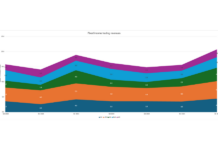JP Morgan’s e-Trading Survey has tracked a substantial shift in capital markets priorities as worsening liquidity, central bank activity and economic fragility overtake COVID, remote working and crypto-curious markets worries in 2022. Opinions are now far more focused, with less dispersion across the range of priorities offered.
‘Corporate bonds’ was the second ranked asset class to benefit from electronification, with 15% of respondents putting it in first place, but lagging behind commodities at 16%. Some 72% of traders said they had no plans to trade crypto or digital assets.

“We continue to see strong momentum towards electronic trading, as seen by 100% of survey respondents predicting an increase in electronic trading over the coming years,” said Scott Wacker, global head of FICC eSales at JP Morgan. “We’re seeing a lot of new entrants in the fixed income market which is really pushing the electronic agenda for the whole industry. It’s an exciting time for the electronic and automation space right now, as we look to offer clients added choice of execution options.”
The research found that nearly half of traders are more concerned about volatility in 2023 than access to liquidity, although liquidity access is still the greatest market structural challenge they face.
The e-Trading survey captures 835 institutional traders’ opinions on the greatest issues impacting markets annually. Now in its seventh year, it has found significant changes in concern on trading desks over the past twelve months.
Forty six percent of traders rated ‘Volatile markets’ as their greatest daily trading challenge this year, pushing ‘Liquidity availability’ into second place with 22% of votes. Last year liquidity was top rated with 35% of respondents putting it top of the list. Regulatory issues and best execution concerns plummeted.
Access to liquidity was the top ranked market structural concern (top ranked by 33% of respondents, up from 25% in 2022) while regulatory change and market fragmentation were ranked second and third (top rated by 14% and 12%), pushing technology and data far down the rankings.
Recession risk was expected to have the greatest impact on markets (30%) followed by inflation (26%), geopolitical conflict (19%) and market / economic dislocation (14%).
©Markets Media Europe 2023
©Markets Media Europe 2025



























